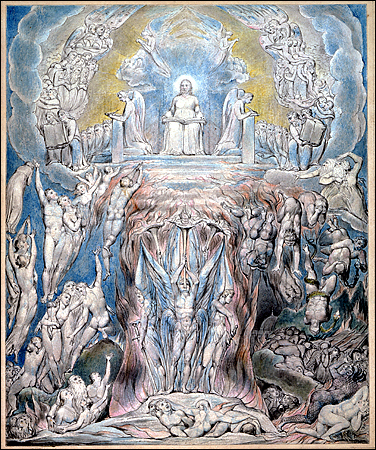These lectures were given from notes using a whiteboard, and recorded audio only. I subsequently turned the contents of the board into slides that could be added over the audio track, and that is mostly (though not all) what you’ll see throughout. I’ve included slides and associated course materials below. One final thing to mention is that the course was cut short in response to strike action by the UCU, so there is no lecture on Duns Scotus, though he does get a mention in lecture 9.
Part One: Platonic Theology
In the first half of the semester we will be exploring the influence of Platonic philosophy on early Christian theologians, and the way their ideas have in turn influenced later philosophical thinkers.
Lecture 1 – Introduction: Philosophy and Theology
Questions: What is philosophy? What is religion? What is the divine?
Theology: Plato (idea and soul), Neoplatonism (Plotinus ‘On Beauty’)
Philosophy: Roko’s Basilisk (Auerbach ‘The Most Terrifying Thought Experiment of All Time’)
Extra: How to take a course.
Lecture 2 – Good, Evil, and Sin: Theodicy
Questions: What is evil? Why does it exist? Why do we do evil deeds?
Theology: Augustine I (Confessions, §2.4-2.10; §7.9-7.16)
Philosophy: Leibniz (Theodicy, Appendices, ‘Excursus on Theodicy’)
Lecture 3 – Creation and Time I: Eternity
Questons: Why is there something rather than nothing? Is time real?
Theology: Augustine II (Confessions, §11.3-11.28)
Philosophy: Heidegger (‘What is Metaphysics?’)
Lecture 4 – Negative Theology I: Mysticism
Questions: What can (and can’t) be thought? What can (and can’t) be said?
Theology: Pseudo-Dionysius (The Mystical Theology)
Philosophy: Witgenstein (Tractatus, selected propositions)
Lecture 5 – Faith and Reason I: Perfection
Questions: What can (and can’t) be proved? What is perfection? What is existence?
Theology: Anselm (Proslogion, ch. 1-5)
Philosophy: Perfection in ethics and aesthetics.
Extra: How to plan an essay.
Part Two: Aristotelian Theology
In the second half of the semester we will be exploring the influence of Aristotelian philosophy on theologians from other Abrahamic faiths (Islam and Judaism), its subsequent influence on medieval Christan theologians, and the way their ideas have in turn influenced later philosophical thinkers.
Lecture 6 – Faith and Reason II: Necessity
Questions: Why is the world the way it is? Could it be otherwise?
Theology: Aristotle I (physics and metaphysics), Ibn Sina (The Salvaton, ‘Metaphysics’)
Philosophy: Meillassoux (‘The Immanence of the World Beyond’)
Lecture 7 – Negatve Theology II: Messianism
Questions: What can (and can’t) be known? What can (and can’t) be hoped for?
Theology: Aristotle II (logic and categories), Maimonides I (The Guide of the Perplexed, Book I; Book II, ch. 32-40; Book III, ch. 27)
Philosophy: Derrida (‘Force of Law: The Mystcal Foundations of Authority’)
Lecture 8 – Creaton and Time II: Change
Questions: How can something emerge from nothing? Is change real?
Theology: Maimonides II (The Guide of the Perplexed, Book II, ch 13-25), Aquinas I (Treatise on Creation, Q45-46)
Philosophy: Lee Smolin (‘The Metaphysical Baggage of Physics’), Max Tegmark (‘Life is a Braid in Spacetime’)
Lecture 9 – Faith and Reason III: Simplicity
Questions: What is the difference between creator and created? Why is there only one creator? What’s the difference between material and immaterial beings?
Theology: Aquinas II (‘On Being and Essence’)
Philosophy: Wojciech P. Grygiel (‘Artificial Intelligence and Scholastic Epistemology’)
Lecture 10 – Conclusion: Univocity
Questions: Do we speak of God analogically, or univocally?
Theology: Duns Scotus (‘The Possibility of Knowing God’)
Philosophy: TBC

